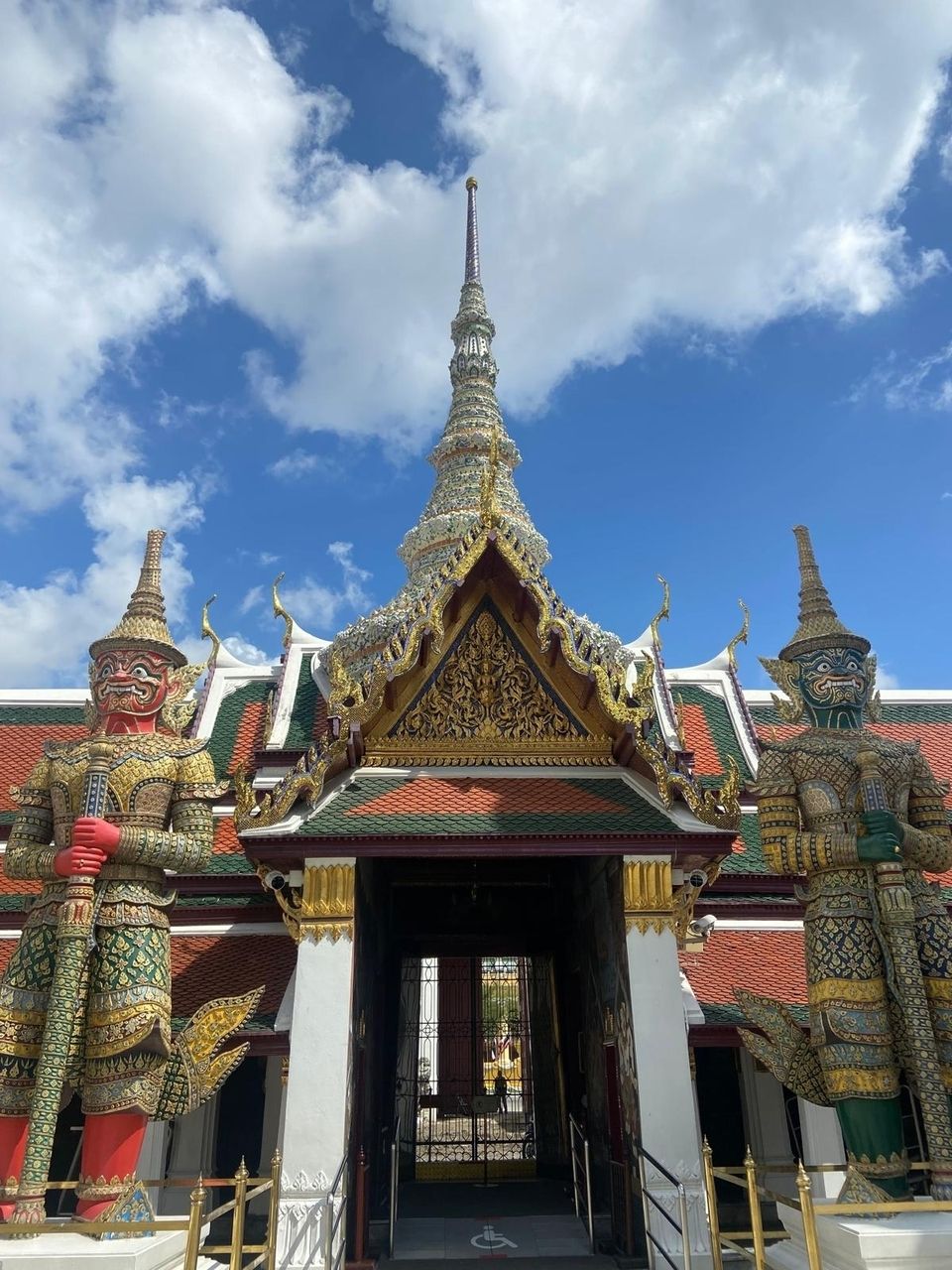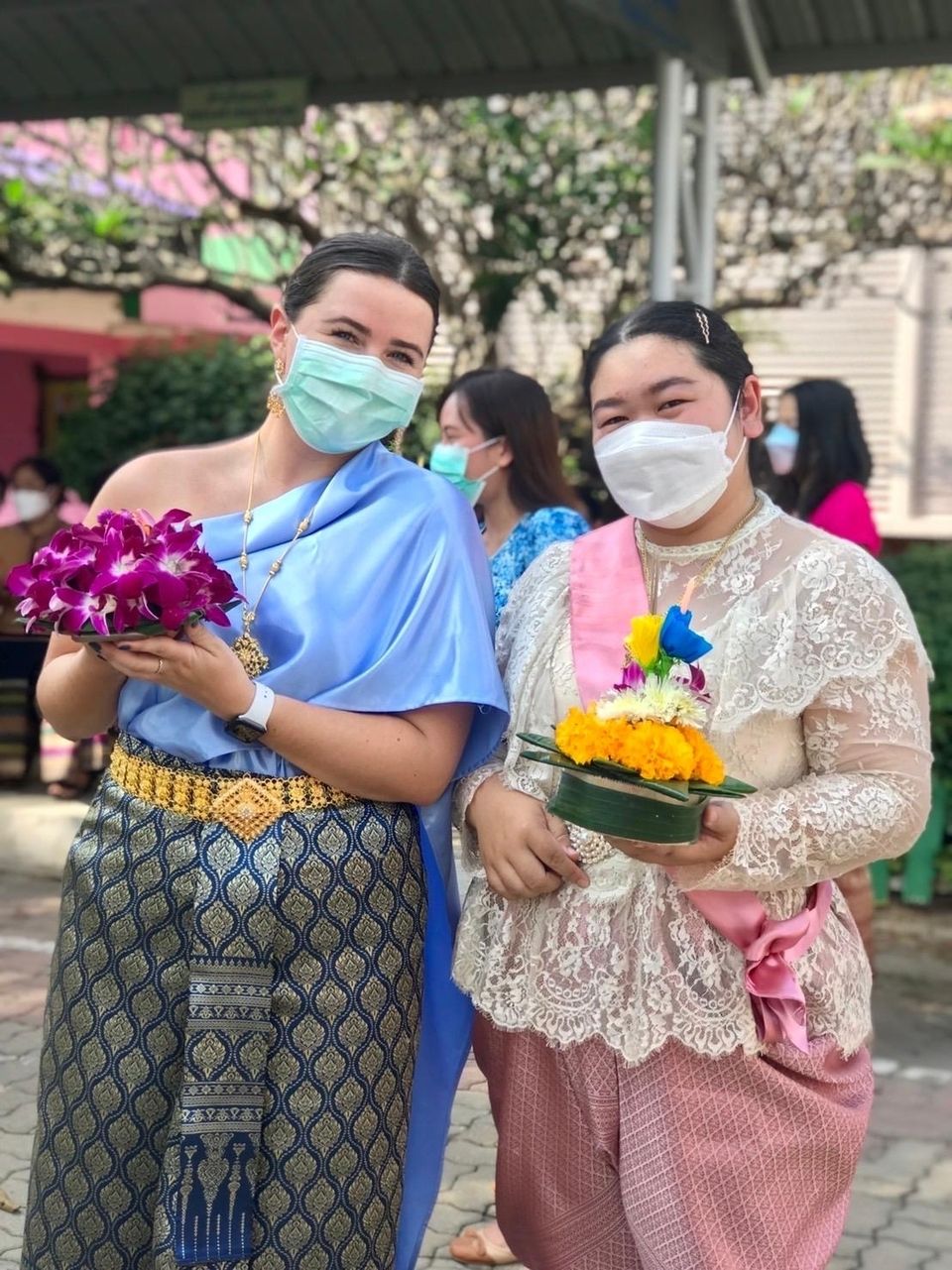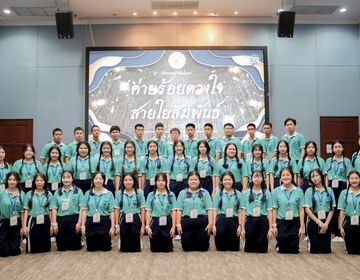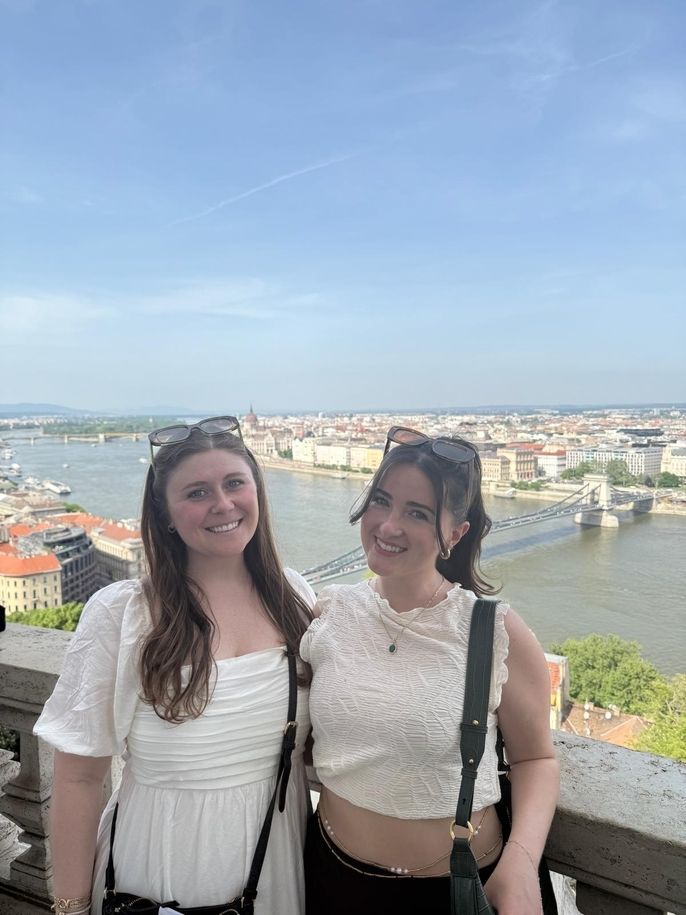Teaching English Abroad: Thailand vs. Hungary Comparison
Meet Sarah- a CIEE Teach Abroad & TEFL Alum! 😊
Hi, I’m Sarah! I’m originally from New Jersey, but for the last 4 years I have been traveling all over the world. I graduated from Indiana University with a BS in Public Affairs before moving to Saraburi, Thailand in 2021. I got my 150 hour TEFL certification through CIEE and used the CIEE Teach in Thailand program to secure a job. I lived in Saraburi for a year and backpacked through Asia for about 6 months after my contract ended. I chose Thailand because it had always been at the top of my bucket list. More specifically, I was on a mission to see Phi Phi Islands, and to have some real authentic Thai food. Fortunately for me, Saraburi had plenty of food options, all accompanied with lovely people who loved to introduce me to new things. I was also lucky enough to visit Phi Phi 3 times, and I still consider it one of my “happy places” to this day.
Now, I am teaching in Budapest after learning about CIEE’s TEFL job placement in Hungary. I have been here almost a year, and I am staying at least for one more. I decided to do this very randomly. I was backpacking in South America when I received an email about new placement opportunities in Budapest and I realized that Europe should be the next place that I live. I think about that email all the time (considering how many emails I skipped over while traveling) and I count my lucky stars, because I really love my life here.

What was the single most valuable takeaway or skill you gained from the CIEE 150-hour TEFL course that directly impacted your ability to teach effectively in an international classroom?
Having no classroom experience prior to moving to Thailand, I am so glad that I got TEFL certified. I always used the skills I learned during the course in my classes and I think I would have been overwhelmed without any knowledge on how to run a classroom. The most common question I get from anyone asking about my work life in Thailand or Budapest is “How do you teach or even communicate with your students if you do not speak the same language?”. Thanks to the TEFL course, I know that translation is not necessarily the easiest or best way to teach a new language. Especially with young students, I learned it is important to use their interests to create lesson plans. Whether this be through songs and movements, or actions and dialogues, the first step is to gain the students attention and to keep it through fun and interactive lessons.
Can you describe the differences between the teaching position in Thailand vs Hungary and give insight on the expectations and responsibilities you had in each place?
Hungary is more similar to the US school system. Even at the preschool, my days are structured, the students know the schedule and my responsibilities are clear. I lesson plan for “circle time”, I am with the students the whole day, I have some after hours responsibilities such as a Halloween party or Mother’s day show and I write a newsletter for the parents each month.
Thailand on the other hand, lacked structure and I was not with the students for the whole day – just their English classes. I had a few after hours requirements such as the Christmas recital or Songkran, but not much. I was also given textbooks to follow so that alleviated a lot of lesson planning. In my experience, to be an English teacher in Thailand, it is best to take each day as it comes.
Although both are very different, I have truly enjoyed my time teaching in each place and my favorite part will always be experiencing different cultural customs.

Outside of teaching, can you give us a snapshot of what living in Thailand and Hungary looks like?
Living in Thailand was definitely more of a culture shock than Budapest. Since I was not placed in a large city or popular tourist location, I did feel isolated at times. Especially considering almost half of my time in Saraburi was in lockdown due to Covid. The pandemic also steered other teachers away and caused my roommates to leave the country early on, so for a few months the only people I could communicate with were some of my students. Again, I can best describe this feeling as isolating. The language barrier was tough in the beginning, but like with anything else it became normal and I found my own rhythm. Google translate was also such a good friend during this time. However, when restrictions eased I was able to resume normal life and gained some new faces and new friends in Saraburi. When this happened, I had people to hang out with during the week after work and travel with on the weekends. It was quite easy to get around the country using buses or flying – and it was great to be so close to Bangkok. In terms of safety, Saraburi was great. I lived in a small neighborhood with very welcoming and kind neighbors. My landlords, Mr. and Mrs. Pong lived right next door and were there to help me with any issues. They loved to check in on me, bring me some fruit and check the “laundry detergent” I was using, after mistakenly only using fabric softener for my first month (Mr. Pong found this very funny).
My day to day life in Budapest differs in many ways. Living in a large European city gives me endless opportunities to meet new people and to always have something to do. There are many expats living here and I was able to find my people and find the places that I enjoy rather quickly. There is always something going on in this city, whether a pop up concert in a park, a new art gallery opening, or an event on a boat, it's hard to be bored here. Also, one of the best parts about living in Europe is the ease of traveling to new countries. Whether trains, buses or planes, weekend trips all around the continent are possible and more than that, they are encouraged and often the norm. Safety is always a concern, of course, but I have never felt in danger in Budapest. The people are kind and the public transportation is the best I have ever seen. There is the occasional pickpocket, but nowhere near as frequent as in other major European cities. The language barrier is not a problem, as most adults understand English and if not, they are usually still open to helping or using google translate. I am currently on the apartment search for next year with my friends and google translate is our greatest tool for Facebook posts or communicating with realtors. I am currently living in housing that my company arranged, which is very basic and close to work which is nice, but I am excited to be living in an apartment of my choosing with my friends.

Overall, how would you characterize the differences in your experience between a CIEE Teach Abroad program (Thailand) vs. a CIEE TEFL Job Placement Assistance Opportunity (Hungary)?
I’m thankful I chose the CIEE Teach Abroad in Thailand program because above all else, it eased many worries I had about moving to the other side of the world. My job, my living situation and my visa were all sorted through CIEE and their Thailand partner, and I know now how stressful those things can be – anywhere in the world. I was very young and fresh out of college when I moved to Thailand and there were things I did not even consider when moving to a new place that CIEE helped me think about and be prepared for.
The CIEE TEFL Job Placement Assistance for Budapest changed the course of my life for sure. Being a CIEE alum, I receive emails about new opportunities and for whatever reason I chose to reach out regarding the new placements in Budapest. At the time I was on a 10 month backpacking trip through Central and South America and I had no intention of teaching abroad again. However, how quickly I was put in touch with my now employer in Budapest made me really think about what was next for me. My goal in life is to see as much of the world as possible, so once I received the job offer, Europe seemed like the perfect next place for me. I also knew that Europe was more expensive than Asia and South America, so if I wanted to see a lot of it and stay long term, a consistent job was necessary. CIEE put me in touch with the company that hired me. The Job Placement Assistance is just that, helping me get into direct contact with job opportunities in a new place.

If you could give one piece of advice to someone considering taking the CIEE TEFL course and teaching in Thailand or Hungary through our program, what would it be and why?
My best advice is that it is always worth it to do something out of your comfort zone. As long as you have an open mind, and can prepare as best as you can, you will succeed. The TEFL course can help you adapt to a new environment and if you’re considering both Thailand and Hungary, I would definitely weigh the pros and cons of the day to day lifestyle. Yes, there are so many special and once in a lifetime experiences when you do something like this, but make sure you can be content everyday with your schedule or surroundings. An open mind is your best tool!
What’s next for you after this experience teaching abroad?
I am staying in Budapest and continuing to teach for at least one more year. After that, I genuinely have no idea where I'll go. I love the lifestyle here and can see myself moving to another country in Europe, but I am eager to continue traveling so who knows!? I am excited to see where I end up.
Related Posts

How Schools Shape Students in Thailand: A word from my students
What does school truly teach beyond textbooks and exams? In this reflection, three Thai students offer an inside look at how education shapes not only their academic futures, but their character and identity. Through their voices, we see that Thai schools function as more than places of learning — they are spaces where discipline, ambition, cultural pride, and respect are carefully cultivated. From the belief that education determines one’s future, to the daily practice of courtesy and social harmony, these students reveal how Thai education prepares young people not just for university, but for life. Their perspectives offer a powerful reminder that schools reflect the values of the society they serve.
My Halfway Mark: 5 Things I've Learned Teaching In Thailand
At the halfway point of my journey teaching in Thailand, I’ve realized this experience is about far more than lesson plans and classrooms. It is about adaptability, humility, courage, and connection. In this reflection, I share the five most important lessons I’ve learned so far, from learning to “be like water” in moments of uncertainty to saying yes to opportunities that push you beyond your comfort zone. This is not just advice for teachers in Thailand. It is a reminder that when you give your whole heart to a community, embrace growth, and choose courage daily, the experience will transform you in ways you never expected.
Steal My Itinerary: Two Weeks of Travel & Teaching in Thailand
If you’re looking for a good way to see a lot of the country in a similar timeframe, this itinerary felt like the perfect balance of everything. We spent some time centrally in the capital city Bangkok, up north in Chiang Mai, down south in Phuket, and northeast in my placement city, Khon Kaen. Feel free to steal it and tweak it to fit your own travel style!

